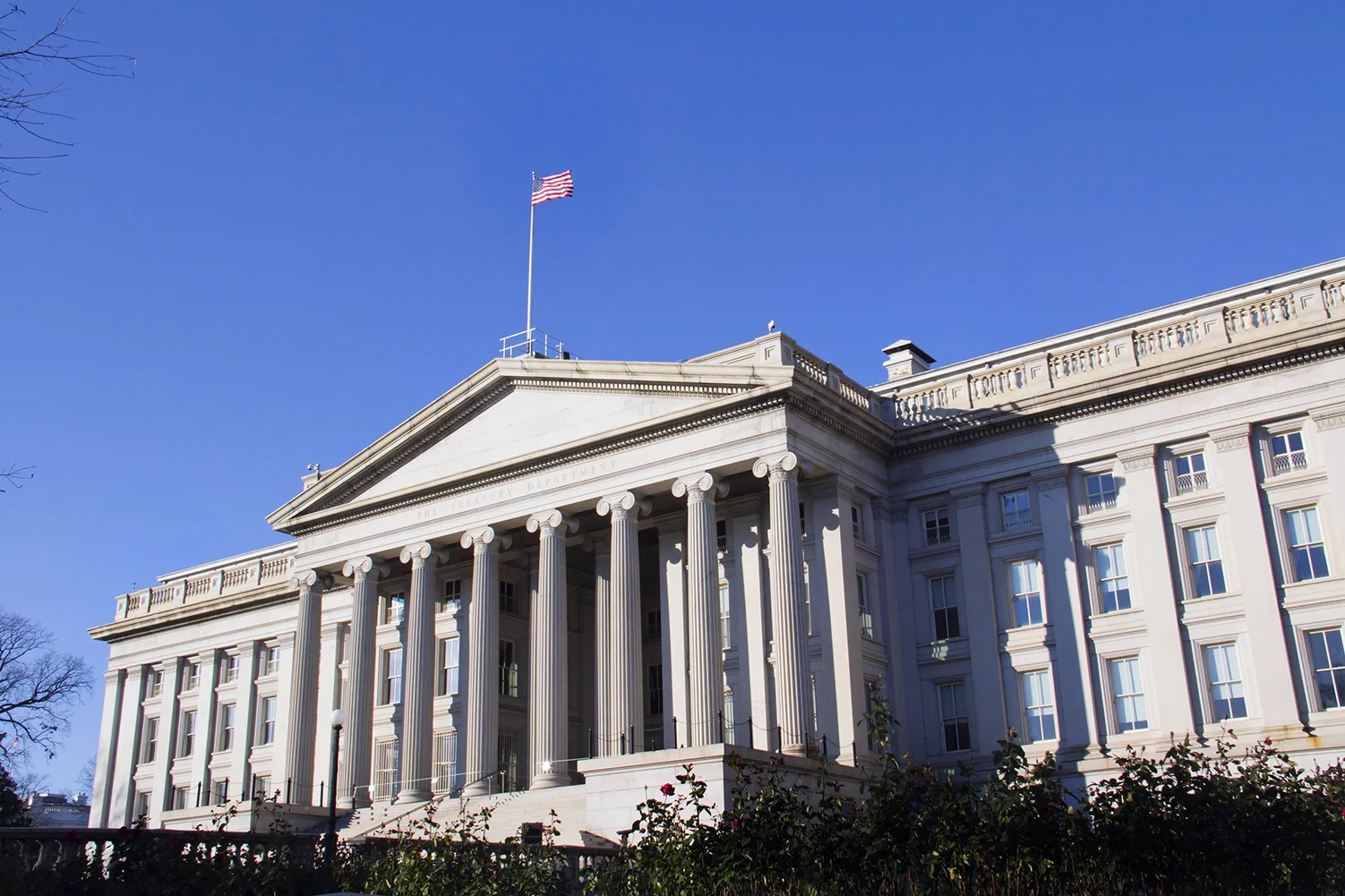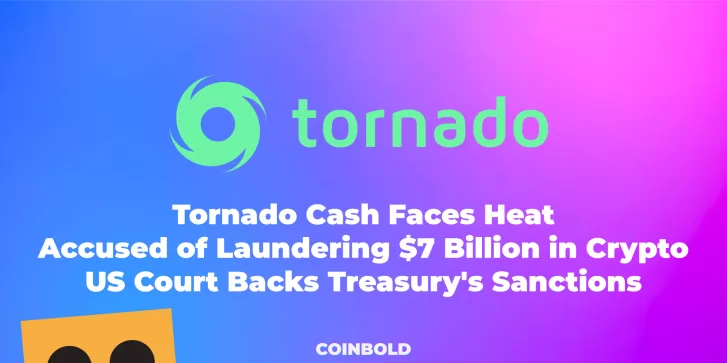Tornado Cash, a significant player in the crypto world, is facing serious allegations of laundering a staggering $7 billion in cryptocurrencies since its inception in 2019. Despite efforts by industry giants and Coinbase, a recent US federal court ruling supports Treasury sanctions against the crypto mixer, signaling a major legal development in the crypto sphere.
Tornado Cash: Under Scrutiny for Alleged $7 Billion Crypto Laundering
In a seismic legal battle that has sent ripples through the cryptocurrency landscape, Tornado Cash finds itself in the eye of the storm. Accused of facilitating the laundering of an astounding $7 billion worth of cryptocurrencies since its establishment in 2019, this crypto mixer is now at the center of a high-stakes legal showdown that pits industry leaders against the might of the US Treasury.
Read more:
A Ruling That Echoes
A federal court’s recent ruling reverberates across the crypto world, as it denies a motion filed by crypto giants including Coinbase. Judge Robert Pitman of the US District Court for the Western District of Texas dismissed the motion, which argued that the US Treasury sanctions against Tornado Cash exceeded their authority. The ruling sends a clear message that the Treasury’s efforts to curb financial transactions linked to foreign terrorist organizations are valid and enforceable.

Backing the Plaintiffs: Coinbase’s Unsuccessful Effort
Within the courtroom, six plaintiffs, including key personnel from Coinbase, stood united in their motion for summary judgment. Their claim rested on the assertion that the Treasury’s actions infringed on the rights of law-abiding citizens engaging in legitimate financial activities through private businesses. Coinbase’s support of the plaintiffs underscored the industry’s collective concern. However, despite the united front, the court sided with the Treasury, solidifying its stance on the matter.
Money Laundering Allegations and OFAC’s Stand
Tornado Cash’s alleged involvement in laundering over $7 billion worth of cryptocurrencies has drawn the ire of the Office of Foreign Assets Control (OFAC) under the Treasury. The agency’s response was swift and decisive: it imposed sanctions on the crypto mixer. This move included the banning of smart contracts and crypto wallets associated with Tornado Cash, aiming to disrupt its operations.

Link to Cybercrime: A Troubling Connection
Recent revelations have tied North Korean cybercrime organizations to the theft of approximately $2 billion worth of cryptocurrencies in 2022. Notably, the digital asset analysis firm Chainalysis identified a concerning pattern. These criminal entities heavily relied on Tornado Cash to cleanse their ill-gotten gains. This link underscores the crypto mixer’s potential role in enabling criminal activities on a global scale.
Read more:
Legal Interpretation: Judge’s Ruling on Smart Contracts
Judge Pitman’s ruling delved into the very heart of the matter, likening smart contracts to automated vending machines. He deemed them to be within the scope of regulations, thereby placing Tornado Cash’s activities under the Treasury’s watchful gaze. The court underscored that the Treasury’s designation encompassed the decentralized autonomous organization (DAO) operating the crypto mixer. The argument that Tornado Cash lacked entity status was ultimately dismissed.
In conclusion, the legal standoff surrounding Tornado Cash serves as a stark reminder of the complexities intertwined with the evolving crypto landscape. Accusations of laundering billions, connections to cybercrime, and regulatory battles underscore the need for clearer boundaries and enhanced oversight in the crypto realm. The court’s ruling signals a critical juncture in the journey toward shaping a responsible and transparent cryptocurrency ecosystem.


